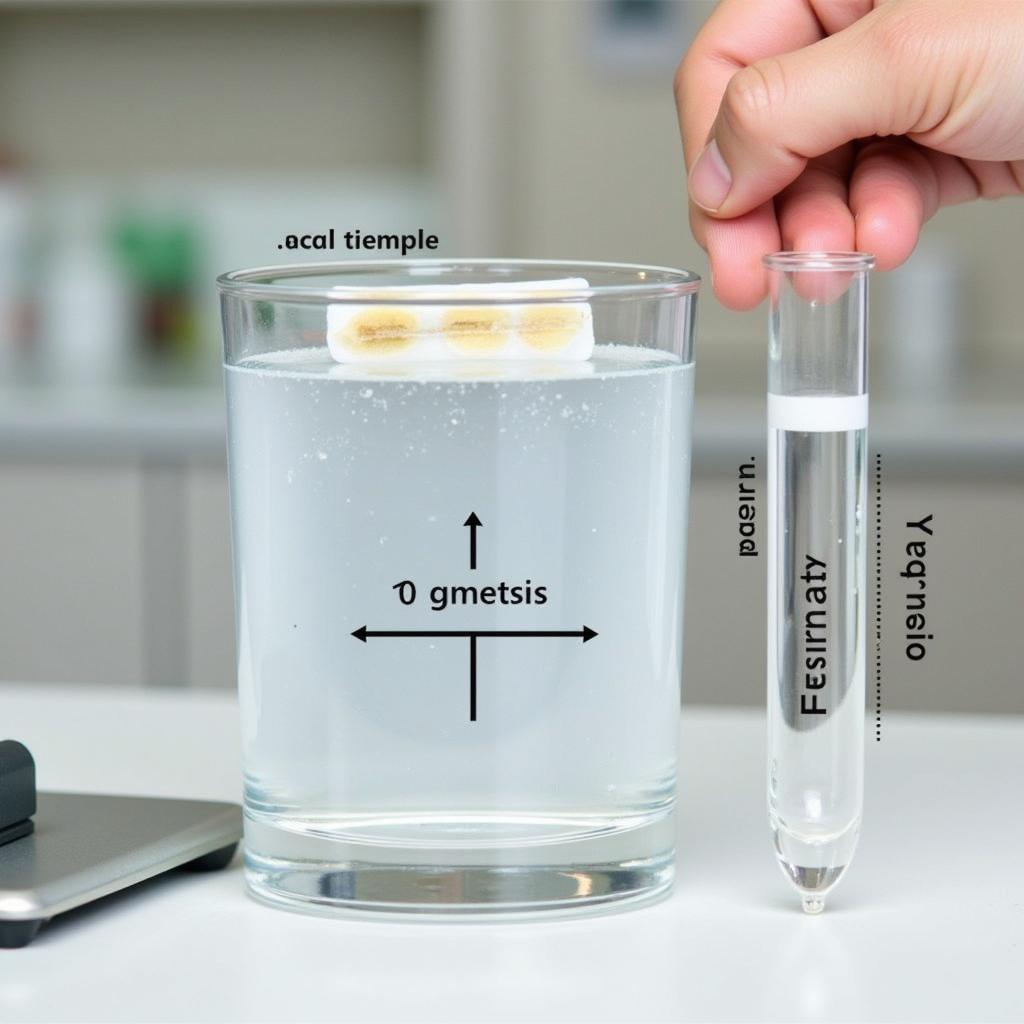Lungworm In Horses, a parasitic infection caused by Dictyocaulus arnfieldi, can significantly impact a horse’s respiratory health. While not as common as other equine parasites, lungworm infestations can lead to chronic coughing and other respiratory issues if left untreated. Understanding the signs, diagnosis, and treatment of this parasite is crucial for every horse owner.
What is Lungworm in Horses?
Lungworm, specifically Dictyocaulus arnfieldi, is a nematode (roundworm) that primarily infects the lungs of horses and donkeys. Donkeys often act as carriers, showing few or no clinical signs, while horses can experience more severe symptoms. The lifecycle of the lungworm involves the ingestion of larvae from contaminated pasture. These larvae then migrate through the horse’s body to the lungs, where they mature and lay eggs. These eggs are coughed up, swallowed, and passed out in the horse’s manure, starting the cycle anew.
Symptoms of Lungworm Infestation
Recognizing the signs of lungworm is important for early diagnosis and treatment. The most common symptom is a persistent cough, which can be dry or produce mucus. Other signs can include:
- Increased respiratory rate
- Nasal discharge
- Weight loss
- Poor performance
- Exercise intolerance
“A persistent cough, especially in younger horses, shouldn’t be ignored,” says Dr. Amelia Hernandez, DVM, specializing in equine respiratory diseases. “It’s essential to consider lungworm as a potential cause and consult with a veterinarian for proper diagnosis.”
Diagnosing Lungworm in Horses
Diagnosing lungworm requires a combination of approaches. While coughing might suggest the presence of the parasite, it’s not conclusive. Fecal testing can sometimes identify lungworm larvae, but the most reliable method is a Baermann test. This test specifically identifies lungworm larvae in fecal samples, providing a definitive diagnosis. Tracheal washes, where fluid is collected from the horse’s trachea, can also be used to identify larvae.
 Baermann Test for Lungworm Diagnosis
Baermann Test for Lungworm Diagnosis
Treating Lungworm in Horses
Several effective treatments are available for lungworm in horses. Many of these treatments target various internal parasites, including lungworm. Consult with a veterinarian for the most appropriate treatment for your horse. They can recommend the proper fenbendazole for horses or other suitable dewormers. Medications such as panacur for horses may also be prescribed by your veterinarian, but always seek their professional advice first.
Preventing Lungworm Infestations
Prevention is always better than cure. Implementing effective pasture management practices is key to minimizing the risk of lungworm infections. Regular removal of manure helps break the parasite’s life cycle. Rotating pastures with other livestock, like cattle or sheep, who are not susceptible to Dictyocaulus arnfieldi, can also help reduce contamination.
“Good pasture management is crucial for preventing lungworm,” adds Dr. Hernandez. “Regularly cleaning pastures and implementing a strategic deworming program tailored to your horse’s specific needs are essential steps in keeping them healthy.”
Lungworm in Horses: Conclusion
Lungworm in horses, while less prevalent than other parasites, can cause significant respiratory problems. Understanding the symptoms, diagnosis, and treatment options empowers horse owners to effectively manage this parasitic infection. By implementing preventive measures and seeking veterinary advice at the first sign of respiratory issues, you can ensure your horse’s long-term health and well-being. Remember, early diagnosis and proper treatment are essential for a successful recovery. Consider quest plus wormer for horses or prevail medication for horses as potential options, but always consult your veterinarian for guidance.
FAQ
- Can lungworm be transmitted from horses to humans? No, lungworm in horses is not transmissible to humans.
- How often should I deworm my horse for lungworm? Consult with your veterinarian to establish a tailored deworming program.
- Can donkeys transmit lungworm to horses? Yes, donkeys can carry lungworm and shed the larvae in their manure, potentially infecting horses.
- What is the best way to test for lungworm? The Baermann test is the most reliable method for diagnosing lungworm in horses.
- Are there any natural remedies for lungworm in horses? While some natural remedies may help support respiratory health, always consult a veterinarian for diagnosis and treatment of lungworm.
- Can lungworm be fatal in horses? While rare, severe lungworm infestations can lead to complications that can be life-threatening.
- What are the long-term effects of lungworm in horses? Chronic lungworm infections can lead to permanent lung damage and reduced respiratory function.
You might also be interested in our article on cough ease for horses.
When you need support, please contact us at Phone Number: 0772127271, Email: [email protected], or visit our address: QGM2+WX2, Vị Trung, Vị Thuỷ, Hậu Giang, Việt Nam. We have a 24/7 customer service team.